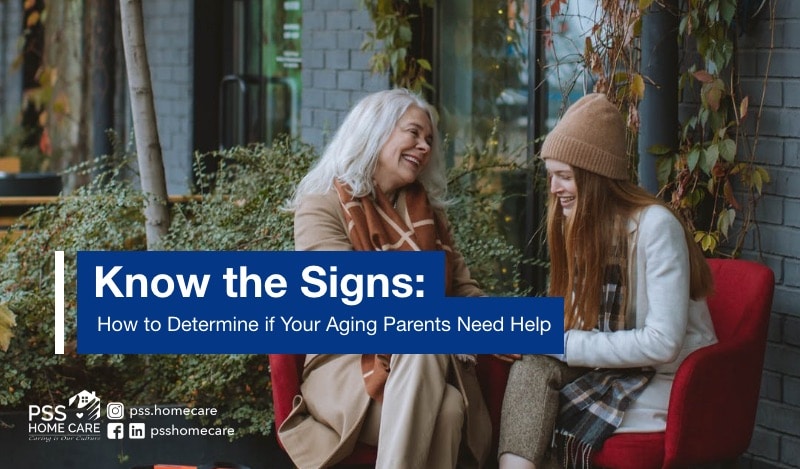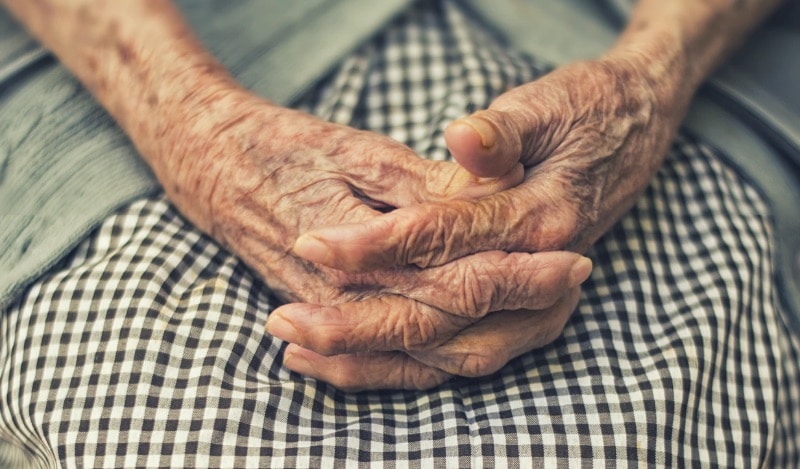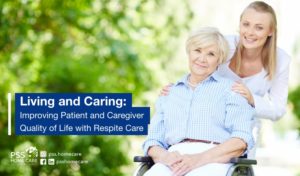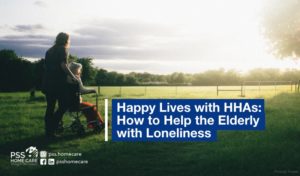A Woman’s Guide to Life After Menopause Menopause, which occurs...
Read More
- Neil Reyes
- August 5, 2021
- No Comments
Know the Signs: How to Determine if Your Aging Parents Need Help

Determining whether one’s parents require help taking care of themselves or otherwise is life-changing — and sometimes, even life-saving. For John, a father of two from Long Island, it was both.
“We visit my mom twice a month. It’s a 30-minute drive to her house and she has kind neighbors that we’re also good friends with,” said John.
“My mom has always been independent. But recently, I started noticing some troubling signs that she needed someone to be with her. The last straw was when she took a nap and forgot that the stove was on — she was heating leftovers. Thank God she was able to come to when she smelled the smoke and called a neighbor to help her out. After that close call, we decided to immediately just talk to her about getting her the help that she needed. She’s now able to live comfortably at home and I’m less anxious,” he shared.
Knowing when to seek assistance for an aging loved one can be difficult, especially when he or she lives far away. It becomes especially tough when older individuals don’t seek help on their own.
Here are some important signs to take note of in order to determine if your aging parents or loved ones need help taking care of themselves.

01.
They start neglecting themselves.
A common sign that older individuals would need help is when they begin neglecting themselves. If they are exhibiting difficulties in bathing, dressing, brushing their teeth, eating, navigating stairs, and walking around, it might be time to get home care assistance for them.
“When we visit our parents, it’s a good idea to probe a bit and check on how they are. Are they able to cut their fingernails and wash their hair properly or at all? Are they able to take their medicines regularly? These are important things to check as these will give you an idea of the kind of care your parents would need,” shared Bryan Estranero, PSS Home Care’s Business Development Manager.

02.
They are no longer able to do tasks like they used to.
Understandably, as our parents age, there are types of activities or tasks that they won’t be able to do, such as mowing the lawn. But if they start not being able to do tasks that they used to regularly do without any trouble such as dusting, washing clothes, paying the bills on time, or changing small fixtures like light bulbs, they may need help at home.
Sometimes, older individuals lose weight because they’re having a difficult time driving to the store, buying groceries, or cooking meals on their own. And though weight loss can also be attributed to other factors, such as health conditions, being able to spot this sign is key to helping address what older individuals need.

03.
They are experiencing memory, behavioral, and social changes.
When older people experience large memory gaps, such as forgetting how to go to familiar places, asking questions repeatedly, or are having trouble following simple directions, they may become prone to health and safety risks. The stage of dementia an older individual has will dictate the level of care that they require at home. It’s important to ensure that older individuals are regularly seen and assisted by their primary care physicians so that a proper treatment plan can be identified and be implemented.
“Aside from gauging your parent’s memory, it’s also important to keep tabs on his or her behaviors and social activities. If a happy and optimistic older person suddenly becomes distant, sad, or reclusive, he or she may need to be seen by a healthcare professional,” remarked Bryan.
Depression can look different for everyone. It can present as a form of a behavioral change such as being irritable, anxious, or sullen. Older individuals who are having trouble sleeping or sleeping too much may be exhibiting symptoms of depression. When you observe any of these changes in your loved ones, encourage them to see a doctor who can recommend treatment as well as home care assistance if necessary.
How to help aging parents who need help
For family members who are concerned about the health and wellbeing of their aging loved ones, voicing out concerns respectfully is key. “Have a sincere conversation with your parents about your concerns. This is crucial to helping them understand you better and them getting the level of care that they need,” remarked Bryan.
Regular visits with doctors and healthcare professionals should be made and kept. If possible, accompany your loved ones to their medical appointments and seek their permission to share your observations with their doctor.
Aging individuals can also benefit from getting home care services especially when family members don’t live nearby. “I can’t recommend home care enough to people I talk to. It’s a nice feeling knowing that your mother is living comfortably and safely at home, and someone’s with her at all times,” shared John.
Caring is our Culture
At PSS Home Care, we provide top-notch assistance to older adults, as well as people living with disabilities, chronic illnesses, or cognitive impairments. Our home health aides help our clients with activities of daily living such as bathing, dressing, and grooming, among many others. They also prepare healthy meals and oversee the administration of prescribed medication. These and more are what make PSS Home Care’s brand of compassionate care exceptional.
For more information about our home care services, contact us at 718-752-9833. We’d be glad to discuss possible care options that best suit your loved ones’ needs today.
Check out our other articles
Monkeypox Overview: What It Is, Who’s At Risk, and What You Need to Know
Monkeypox Overview:What It Is, Who’s At Risk, and What You...
Read MoreLiving and Caring: Improving Patient and Caregiver Quality of Life with Respite Care
Living and Caring: Improving Patient and Caregiver Quality of Life...
Read MoreHappy Lives with HHAs: How to Help the Elderly with Loneliness
Happy Lives with HHAs: How to Help the Elderly with...
Read More



